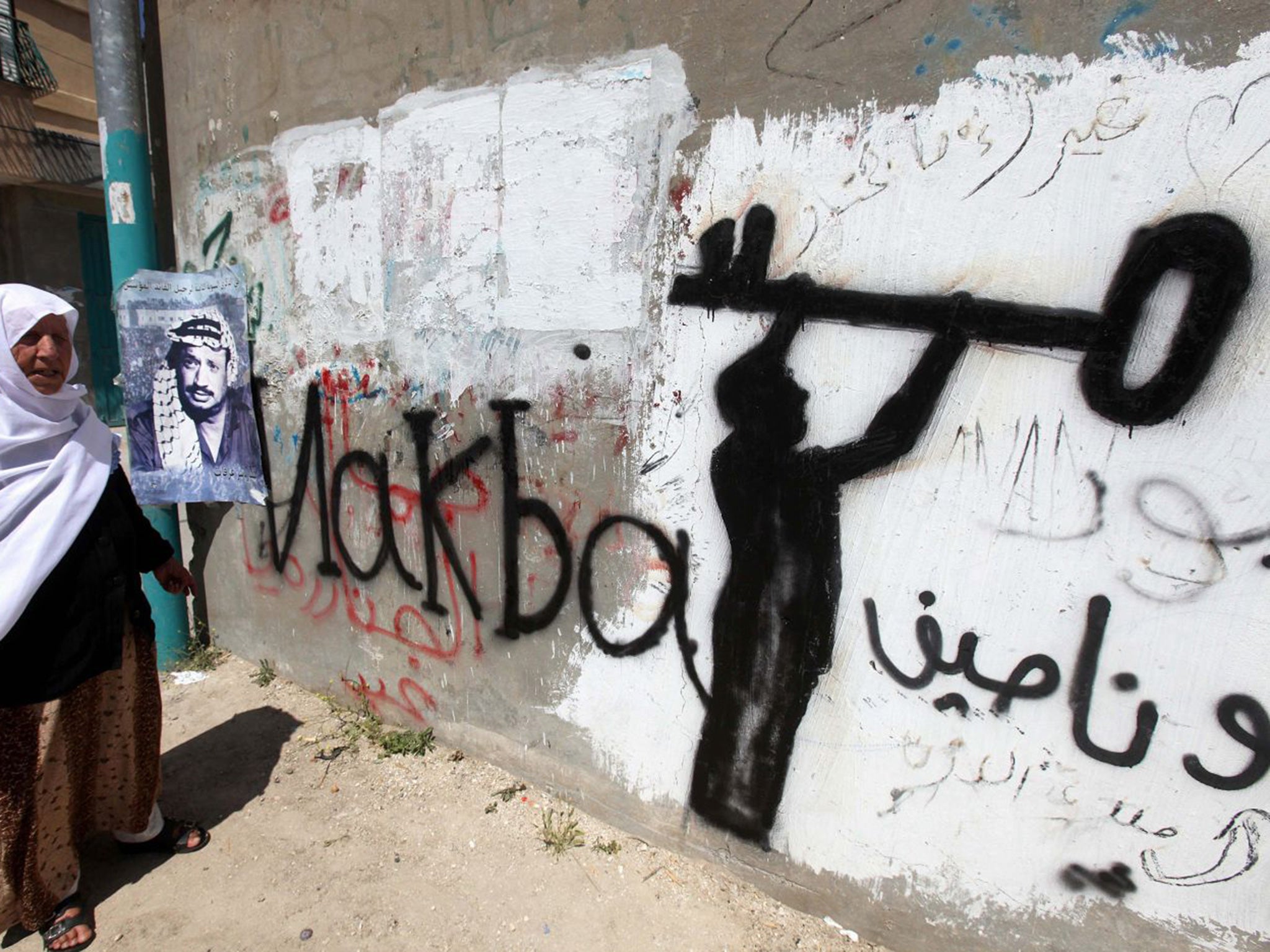Israel plans new West Bank settlement near volatile refugee camp that threatens to become new flashpoint
The road from Bethlehem to Hebron is already beset by clashes. Now a new West Bank settlement close to a troubled refugee camp will add fuel to the fire, Palestinians warn. Ben Lynfield reports from al-Aroub refugee camp

Israel is planning to establish a new West Bank settlement across from a volatile refugee camp, despite warnings from Palestinians and former Israeli security officials that its location is a certain recipe for escalating violence.
“The closeness to the camp will lead to direct friction with residents of the camp. There will be more martyrs, more prisoners and more wounded,” said Osama Jawabra, a member of the residents’ committee of al-Aroub refugee camp.
The settlement, approved by defence minister Moshe Yaalon in October but which only became public last week, will arise on a strategic point on the road that connects the southern West Bank cities of Bethlehem and Hebron. The road is already a focus of stone throwing by Palestinian youths against passing Israeli cars, and al-Aroub has seen increasing clashes in recent months as part of what some Palestinians consider to be a new popular rising, which began in October
A settlement here is likely to become a flashpoint as Palestinians target it and the army responds by intensifying its crackdown on the camp, leaders on the West Bank say.
“People will attack Beit al-Baraka continuously,” Mr Jawabra said, referring to the name of the main building on the settlement site, which means “house of blessing” in Arabic. Davidi Perl, a local settler leader, responded: “We will deal with any situation.”
Invoking the memory of a Palestinian massacre of Hebron’s Jewish community early in the last century, he added: “They have been attacking us since 1929 and we will manage.
Mr Perl does not think it odd to settle so close to 12,500 already embittered Palestinians, nor is he concerned that the international community considers all such settlements illegal. “We have to expand all the time, we can’t be stuck in one place,” he said. “The land of Israel belongs to the nation of Israel. That’s how it was and that’s how it will be, and therefore we have to build in every place.”
The new settlement was enabled by Israel’s slightly extending southward the borders of the Gush Etzion regional council, a grouping of 20 settlements with a population of more than 20,000. Mr Perl said its establishment was “very important strategically” because it further extends the Jewish presence on the road towards Hebron.
The site was previously owned by a church group before being purchased three years ago by the pro-settler American Jewish millionaire Irving Moskowitz – for use at first as a hotel, tour-guide training centre and café.
According to Mr Perl, the plan is to finish renovations at the site so that a hotel can be opened there in the first stage, and then, after obtaining the necessary building permits, to turn it “with God’s help” into a fully fledged residential settlement, he said. The property encompasses 10 acres
The nearby camp is a collection of stucco and concrete structures housing refugees from Israel’s establishment in 1948, and their descendants. Its homes are crammed together on a hillside, its drabness relieved only by striking graffiti likenesses of Palestinian leaders assassinated by Israel. Last week, youths were plastering walls with posters of Khaled Jawabra, a 19-year-old killed by troops on 26 November and a distant relative of Mr Jawabra.
He was shot while throwing stones during clashes with Israeli troops on the road outside the camp. “Don’t die a normal death, die from the volley of bullets,” the posters exhorted. His brother, Abdul-Majid, accused the army of provoking camp youths. “They’ve raided the camp every night since the uprising started. They stop people and hold them for one, two or 10 hours. They block the entrance to the camp,” he said.
Some 58 of the camp’s residents are currently in Israeli prisons and 60 people have been wounded by rubber-coated bullets, live rounds or tear gas inhalation since 1 October, camp activists say.
Mr Jawabra said he longs for a return to his family’s old village of Arab Manshiya, now the southern Israeli city of Kiryat Gat. “It’s not impossible as long as young men resist,” he said. Older residents were also uneasy. “Will we give the settlers flowers and sweets?” asked Fathi Badawi, an unemployed 58-year-old. “There will be a struggle against them until they leave.”
Salah Said, 40, a security guard at a college near the site for the settlement, voiced concern over “friction” between students and settlers. “This is like pouring petrol on the fire,” he said of the plan.
Dror Etkes, head of the Israeli NGO Kerem Navot said that when settlements have been established elsewhere in the West Bank it has ultimately resulted in heightened restrictions on Palestinian movement
In this case their freedom to travel on the main road between the Palestinian cities of Bethlehem and Hebron will be affected, he predicted. “It is likely that sooner or later there will be clashes and casualties and the army will establish no-go zones,” he said.
Mr Etkes said that, because the road connects two key cities of the West Bank, “it’s hard to imagine an area more vital for Palestinian contiguity”. The plan showed the government’s withdrawal from a two-state solution”, he said.
Gadi Zohar, former top military administrator for the West Bank and Gaza, told The Independent that establishing the new settlement “is not exactly the correct thing to do”. He added: “They’ll get extra army protection but any additional presence in this sensitive area increases the potential for further attacks.”
Subscribe to Independent Premium to bookmark this article
Want to bookmark your favourite articles and stories to read or reference later? Start your Independent Premium subscription today.

Join our commenting forum
Join thought-provoking conversations, follow other Independent readers and see their replies